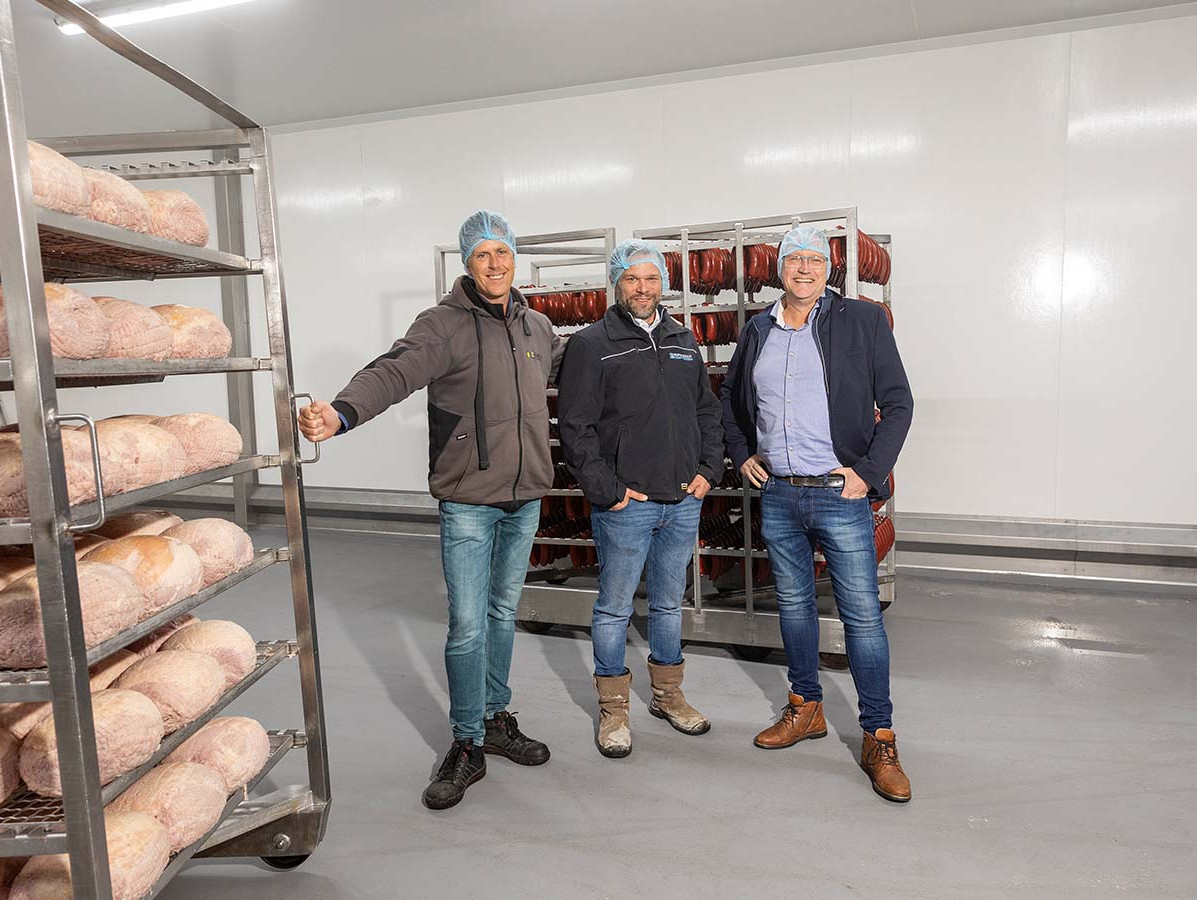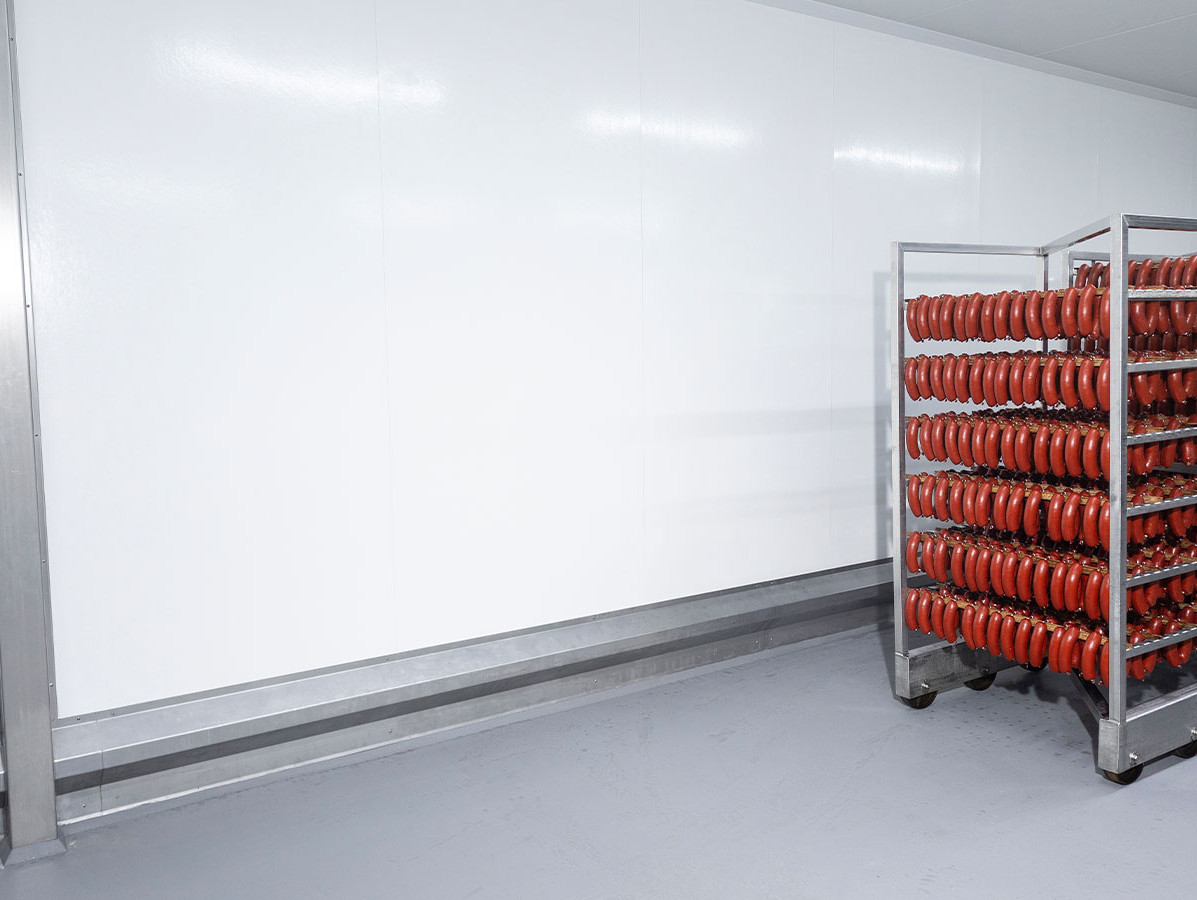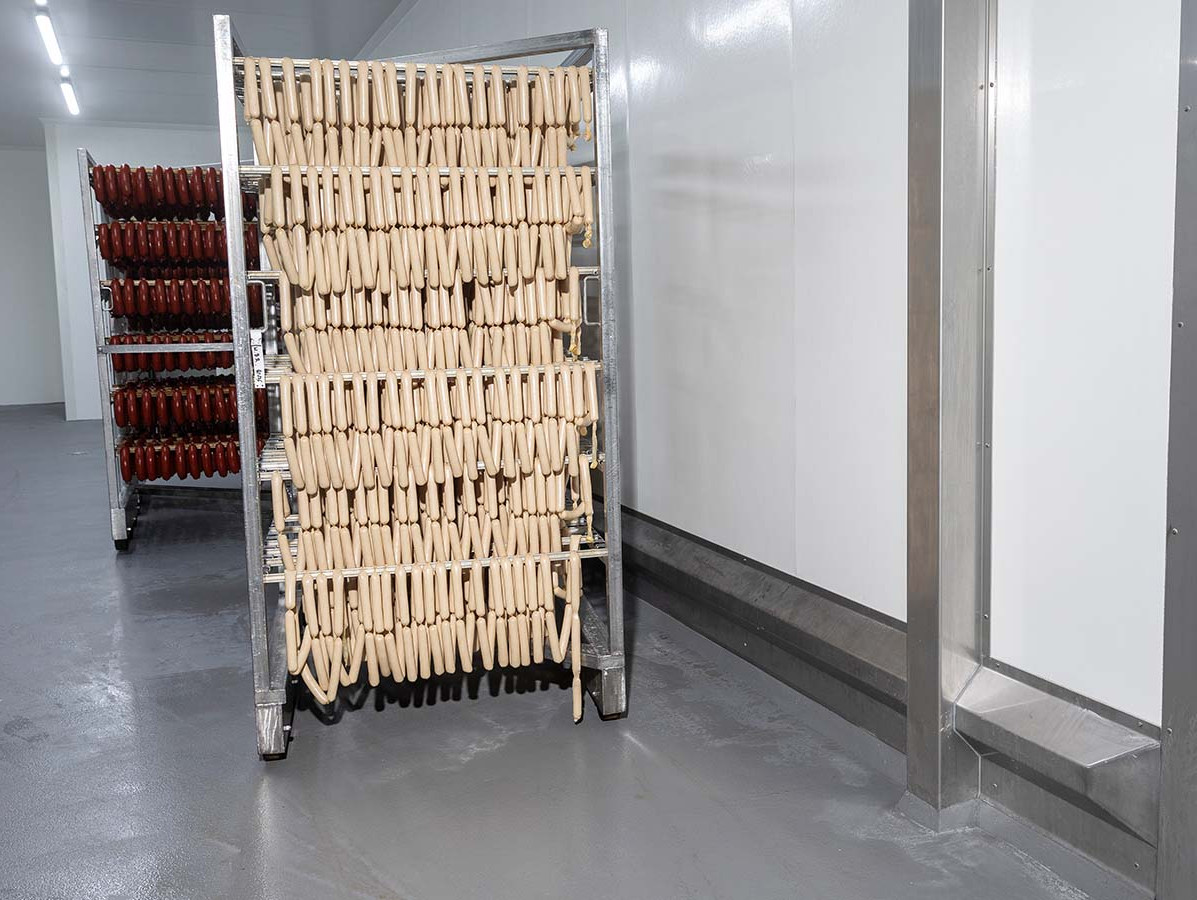
According to Niels Burger, owner of Sentho, the connection between the wall and the floor is a critical point during renovations. As a specialist in hygienic construction projects, Sentho was responsible for a new wall and ceiling system at a meat processing company. The challenge was not only in the wall-to-floor connection but also in the extremely short turnaround time.
Photo: From left to right: Niels Burger, Willem van Helvoort (Project Manager SR Floors), and Martin Hoogendoorn
Specifically, the project involved more than 200 square meters of ceiling and 200 square meters of wall plasterwork. Normally, such a task would require at least three weeks, excluding preparations and calculations. "We're equipped to act fast," says Niels. "For instance, if a company is reprimanded by the NVWA, immediate action is needed to prevent shutdown. We do everything to avoid this. The phrase 'we can't do it' is not in our vocabulary. We have a large warehouse with most materials in stock."

Since its founding in 2015, Sentho has been using what they call FRP insulation panels for ceiling and wall renovations. "These are fiberglass-reinforced polyester panels, flexible for various applications and needs in the food industry," Niels explains. "We're the first to use this product in this way. Compared to traditional tiling and steel sandwich panels, this wall cladding offers better resistance to impacts and scratches. Damages and cracks are breeding grounds for bacteria, as are joints that wear over time. We use two-component epoxy for gluing our FRP panels, which fully hardens, does not attract mold and bacteria, and seals everything watertight. Additionally, the FRP insulation panels have a foodsafe coating and a light texture. Independent research shows that the adhesion of salmonella, E. coli, and listeria is up to 2/3 less than on a smooth surface."
Niels gives an example to illustrate this. "If you place your hand on a flat surface, you get almost a complete imprint. With a lightly textured surface, your hand touches the plate at only a few points, resulting in less adhesion. The texture also allows for more efficient cleaning. On smooth walls, cleaning foam runs right off. With our walls, the cleaning agent adheres better, making it more effective. Our measurements show that this results in 25% less cleaning material needed. This is not only an environmental benefit but also a cost advantage. It might sound trivial, but calculating this over a year, the savings are significant. Add the long lifespan of our FRP insulation panels, and the cost is lower than with traditional systems."

Since January this year, Sentho has also been working with classic sandwich panels. "The demand for complete solutions is increasing. If something is requested of us, we do it. We always come up with a fitting solution. For instance, we can factory-glue our FRP panels to steel sandwich panels, maintaining hygiene standards while building on an existing situation. It's also possible to glue our FRP plates onto old walls. With a thickness of just 2.3 mm, there's hardly any loss of space. In renovation projects, downtime is often limited. Our FRP plates take up little space and are quickly workable, allowing production to continue in most cases." In addition to complete hygienic wall and ceiling solutions, Sentho also offers drainage, collision protection, and door systems. "We manage the project from A to Z, from advice, engineering, and production to installation and maintenance."
Photos ©DCI media
Source: vakblad Voedingsindustrie 2023